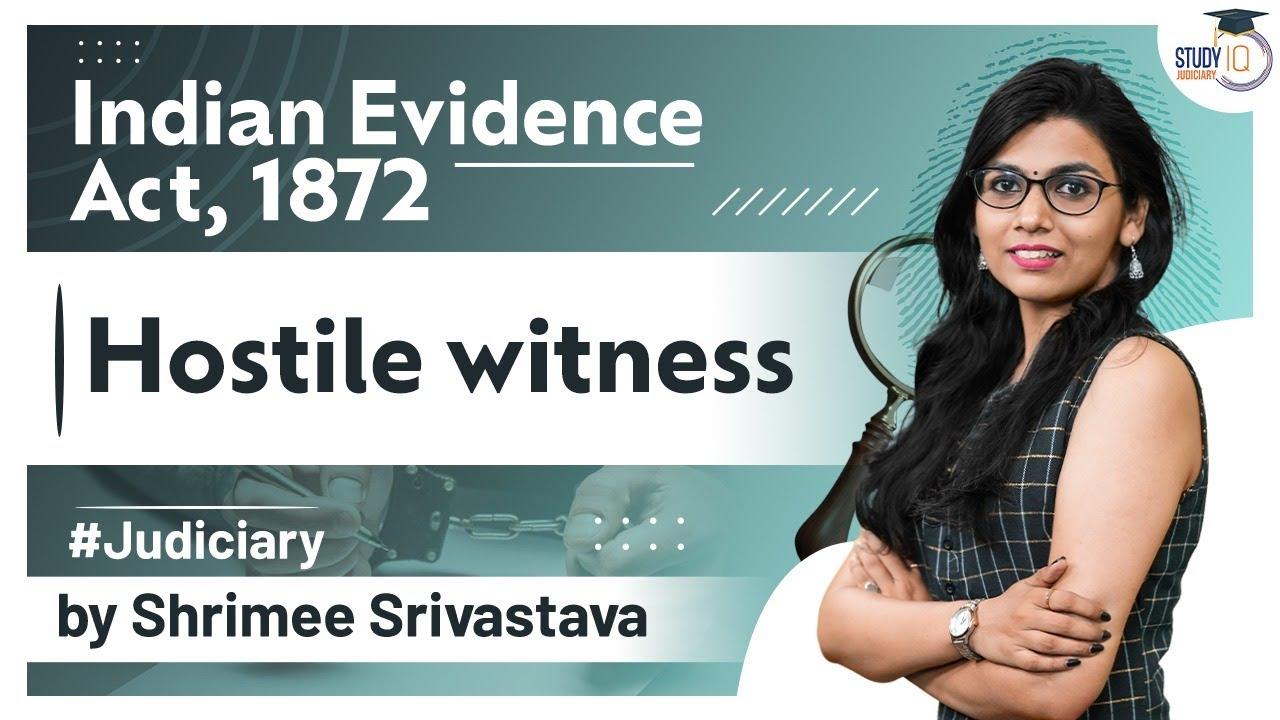Table of Contents
Hostile Witness
- Hostile witnesses can destroy carefully constructed cases and cause unjust acquittals of the guilty, and they can make a mockery of an investigative process.
- These witnesses are brought in by a party to provide a deposition in its favour and help the prosecution build its case.
- Instead, the witness turns in court and gives a version that is different and contradictory to its earlier statements.
Section 154: Question by party to his own witness:
- (1) The Court may, in its discretion, permit the person who calls a witness to put any question to him which might be put in cross-examination by the adverse party.
- (2) Nothing in this section shall disentitle the person so permitted under sub-section (1), to rely on any part of the evidence of such witness.
- Section 154 allows a party calling a witness may, with the permission of the court, put leading questions and cross-examine him when it is found that he is a hostile or unwilling to answer questions put to him.
- It is discretion of the court to allow party to cross-examine his own witness.
Nature of questions:
- When the permission is granted to the party, although it is absolute discretion of the court to give it or not to cross-examination its own witness alike the adverse party the witness may be asked
- (a) leading questions (Section 143) or
- (b) question as to his previous statements in writing (Section 145) or
- (c) question under section 146 in order to injure his character or
- (d) question impeaching his credit (Section 155).
- If the witness turns hostile either in examination-in-chief or in cross- examination by the adverse party, the court may grant leave.
- It is absolute discretion of the court.
- It is legal obligation to exercise discretion invested in the court.
Effect of evidence:
- Evidence of hostile witness is not necessarily false.
- If the court finds something is there in the evidence worth placing the reliance it will be free to do so.
- An outright refection of evidence of a hostile witness is not called for and both parties are entitled to rely on such put of his evidence which assists their case.
Download| Free PDF






















 WhatsApp
WhatsApp